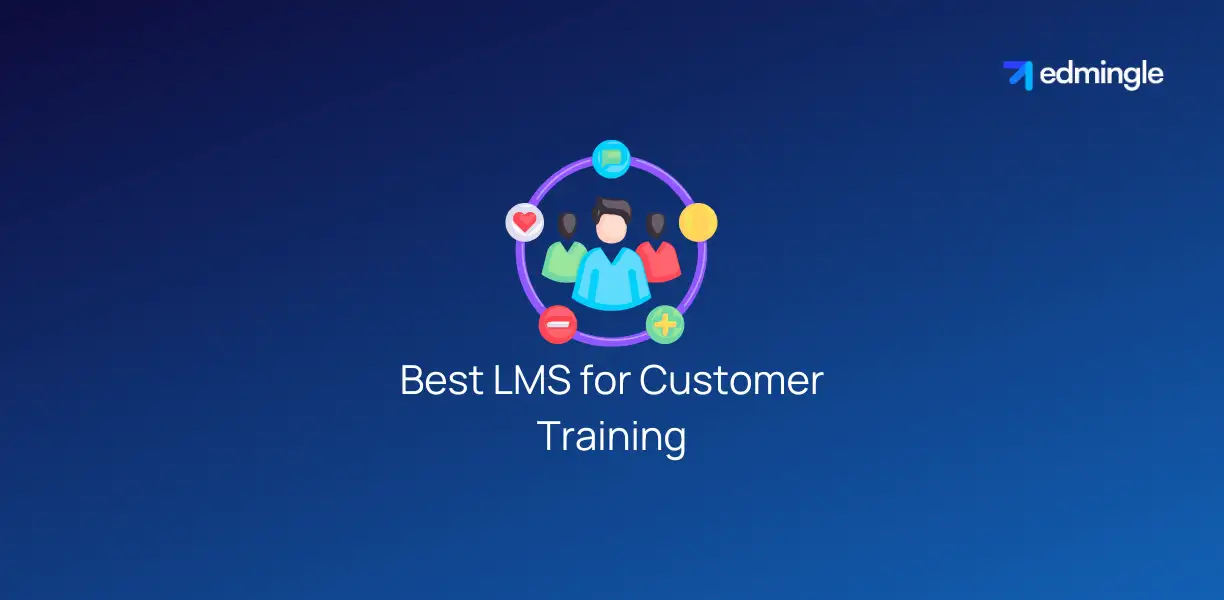
An LMS for customer training is focused on delivering training & online courses to an organization’s/business’s clients. Enhancing their understanding, skill & satisfaction with an organization’s product or service.
Organisations train their clients in order to maximize the value of their product usage. Exceptional customer education is now a necessity due to growing expectations & increased market competition.
The skyrocketing need for client engagement & retention along with improved product training & adoption further exaggerates the need for an efficient resolution. For this, we’ll explore the 11 best LMS for customer training along with their pros, cons & ratings.
Benefits of Using an LMS for Customer Training
- Scalability and Reach: Organizations can train a large number of clients simultaneously. Thereby expanding their potential customer base without compromising on quality.
- Consistency and Standardization: Users receive a uniform training experience. Hence, maintaining brand integrity and ensuring consistent understanding.
- Self-paced Learning: Training materials can be conveniently accessed by clients. This ultimately improves knowledge retention and application.
- Enhanced Product Knowledge: Clients can gain in-depth knowledge about product features, functionalities & best practices. They get well-equipped to use the product effectively. Thus, leading to improved satisfaction & reduced support queries.
- Reduced Support Costs: Customers are now well-equipped to resolve common issues independently. Hence, the need for extensive customer support is reduced.
- Continuous Updates: As products or services evolve, organizations can easily update training materials. This ensures that they stay informed about new features, updates, and industry trends.
- Increased Product Adoption: Customers having a clear understanding of the product can optimally use its capabilities. As they derive it’s maximum value, it increases their satisfaction & loyalty.
- Enhanced Marketing: Satisfied clients & users mean strong relationships & strong referral/word-of-mouth marketing. Thereby further improving retention rate, reducing churn, and a higher lifetime value.
By leveraging an LMS, organizations can increase product adoption, client satisfaction & loyalty. While ultimately driving business & customer success.
We’re thrilled to share that Edmingle helps you reduce your operational cost by up to 20%.
Key Features in a Customer Training LMS
- Intuitive User Interface (UI) & Navigation – Ensures customers can easily find & complete training without confusion
- Content Management & Authoring – Supports various content formats (videos, SCORM courses, PDFs) & offers straightforward tools for creating or uploading learning materials
- Self-Enrollment & E-Commerce – Allows customers to self-register for courses and, if relevant, purchase training content directly
- Progress Tracking & Reporting – Provides clear analytics on course completions, assessment scores & user engagement
- Integration Capabilities – Seamlessly integrates with CRMs, SSO (Single Sign-On), payment gateways & other business systems
- Certification & Compliance Management – Automates certificate issuance & ensures compliance tracking where needed
- Engagement Tools – Uses quizzes, surveys, discussion forums, or gamification elements to keep learners motivated
- Multi-Device Access – Delivers a responsive experience across desktop, tablet & mobile
Explore all the learning management system features.
11 Best LMS for Customer Training in 2025
For your ease of navigating the competitive world of learning management systems. We’ve curated a list of the 11 best customer-learning oriented LMSs of 2025.
1.Edmingle
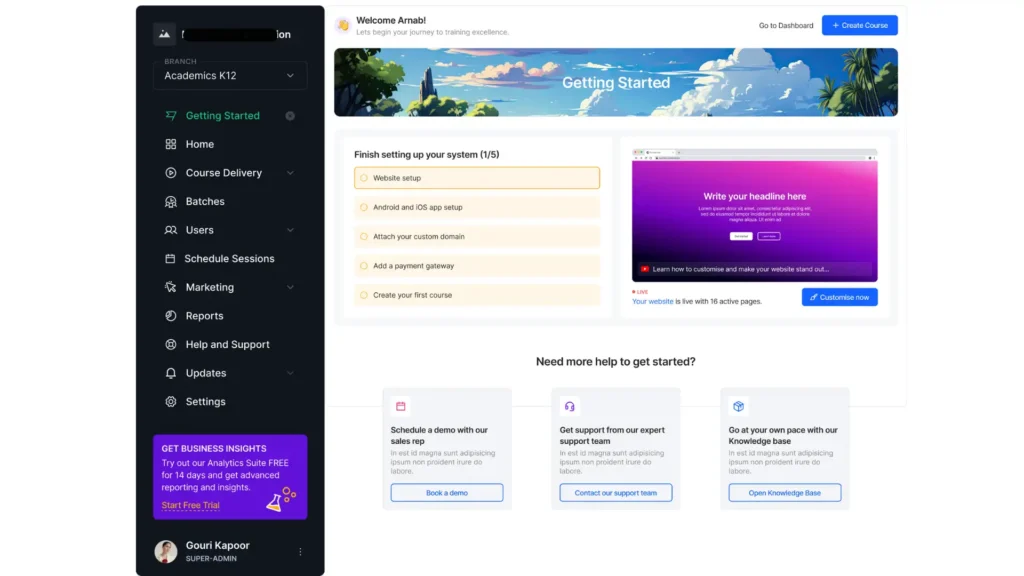
Edmingle is a fully-integrated training platform, perfectly suitable for customer training. Its a robust, scalable & flexible cloud-based LMS (SaaS LMS) platform. With a comprehensive set of useful features. What set it apart in the LMS landscape are it’s 100% white-labelling with a scalable & flexible approach.
Trusted by 5000+ training providers from across 160+ countries. It serves education leaders like McGraw Hill, MIT SDE, Chegg and many more.
Pros:
- Fully white-labelled website, landing pages & mobile apps (both Android & iOS under your own developer account)
- Easy to use, navigate, adopt & implement within a few weeks
- Quick-to-respond, satisfactory & helpful customer support available 24×7 via multiple channels
- All higher plans offer 0% revenue sharing
- AI-powered real-time analytics with comprehensive reporting
Cons:
- The base plan comes with 2.9% revenue sharing
Rating: 4.5 out of 5 on Capterra.
2.Docebo
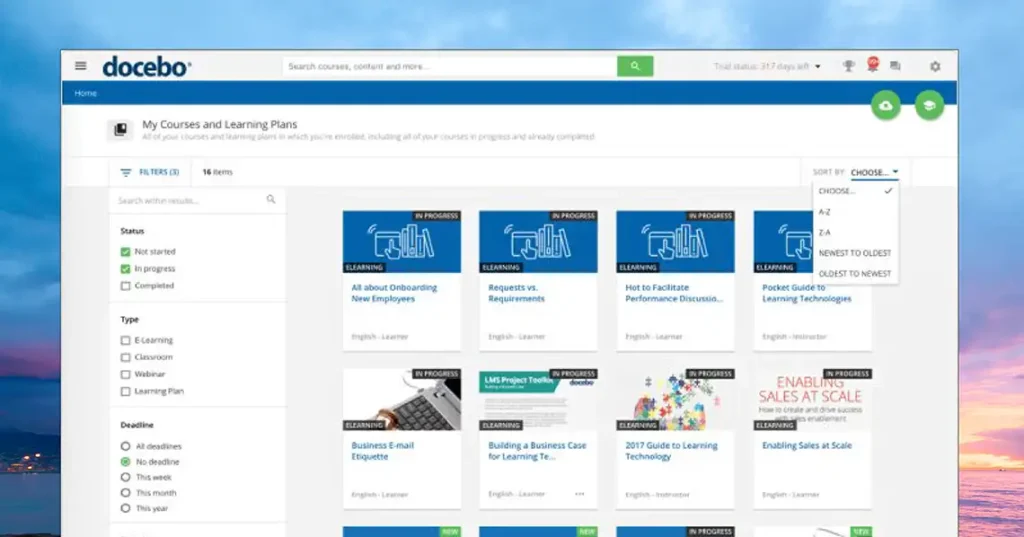
Docebo offers a robust cloud-based learning management system. Designed for customer training with AI-powered suggestions to personalize learning experiences. Its extended enterprise features let you create branded portals & track different user groups. While integrations with CRMs & e-commerce platforms streamline external learner management.
Pros:
- Great personalisation options with good reporting & hierarchy managenment features
- Easy to use & implement platform with responsive customer support
- Good gamification elements
Cons:
- Response time can be frustrating at times with unsatisfactory responses
- The platform can be slow at times
- Limited admin options & customization options
Rating: 4.4 out of 5 on Capterra.
Also read about extended enterprise LMS platforms.
3.Adobe Captivate Prime
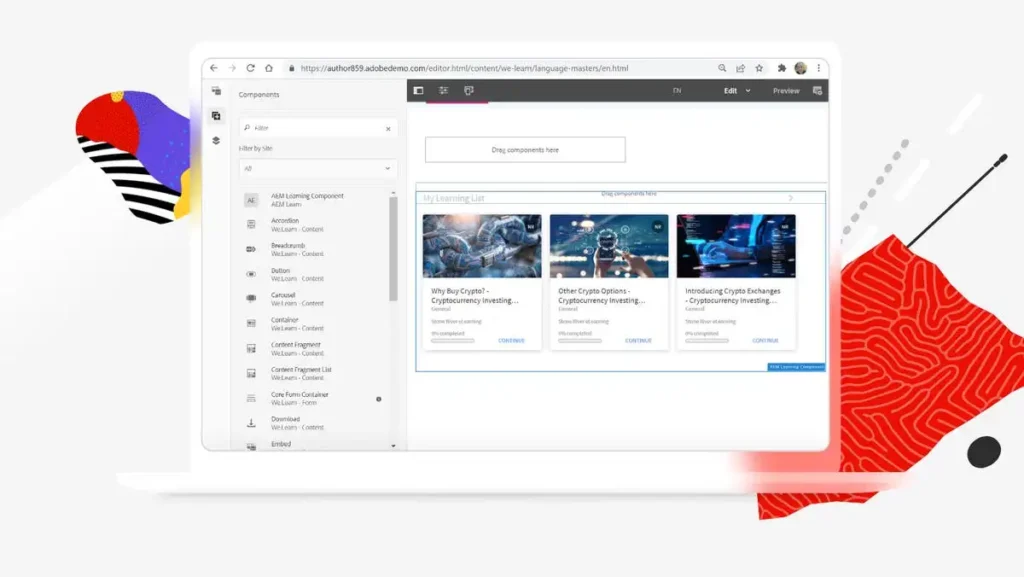
Adobe Captivate Prime is recognized for its user-friendly interface & gamification features. It also offers detailed learning paths with seamless integration to Adobe Captivate (the authoring tool) enabling rich interactive content. Its social learning & gamification features keep customer learners actively engaged.
Pros:
- Good customer support along with an online community
- Different preview options with faster loading
Cons:
- Overpriced platform with outdated interfaces, gives a frustrating experience
- Steep learning curve to use/train users
- Dragging out template sizes can be a bit annoying
- Difficult navigation between different layers
Rating: 4.4 out of 5 on Capterra.
4.SAP Litmos
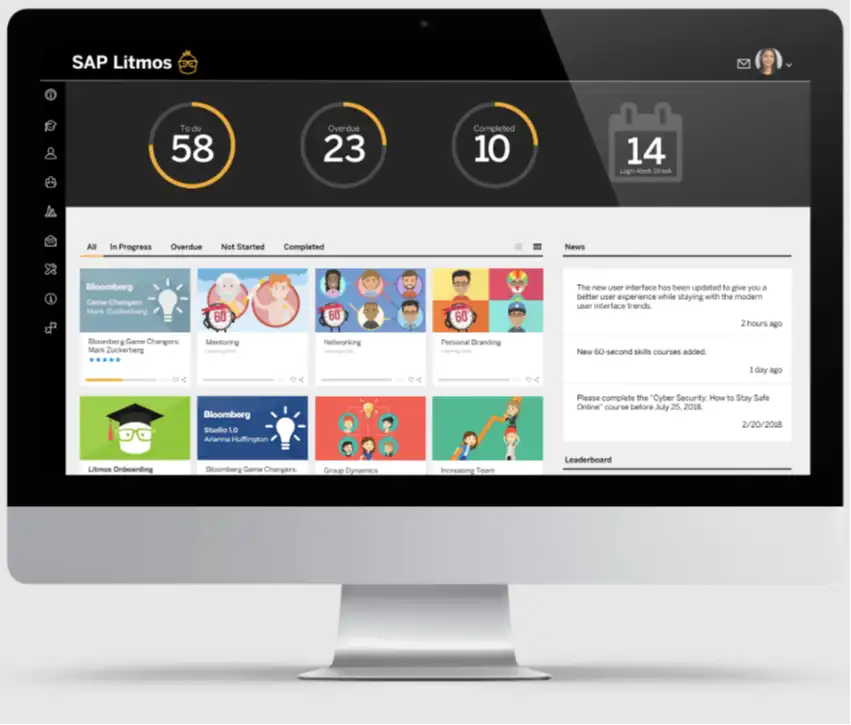
SAP Litmos is known for its enterprise-level features and ease of use. It has a strong focus on mobile learning experiences with a fast deployment & clean user experience. Its suited for training customers at scale with its rich reporting capabilities & out-of-the-box integrations with CRMs, especially Salesforce.
Pros:
- Engaging interface with easy navigation & test/quiz setup
- Good tracking, reporting features & customer support
- Flexible & easy to use platform
Cons:
- Lengthy support requests/processes for issue resolution
- Plenty of bugs reported by some users
Rating: 4.2 out of 5 on Capterra.
You might also like to read about large enterprise LMS platforms.
5.Mindflash LMS
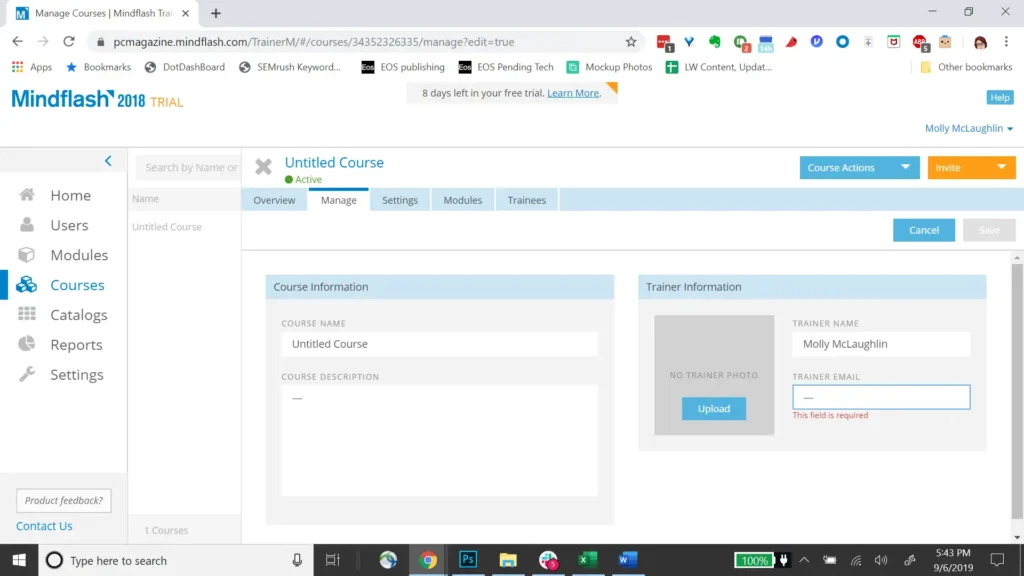
Mindflash offers an easy to use, intuitive platform for customer training. With a particular strength in its analytics & reporting features. It converts common file formats into trackable courses & automates compliance, reminders & certifications. Its white-labeling features help maintain a consistent brand experience for your customer audiences.
Pros:
- Easy & simple course creation features with an intuitively designed platform
- No technical expertise required
- Efficient quiz & assessment features
- Flexible with various content formats
Cons:
- Limited customization makes it difficult to align with branding guidelines
- Basic reporting features lacking depth & granularity
- Occasional technical issues, glitches & slow loading times
Rating: 3.5 out of 5 by PC Magazine.
6.LearnUpon
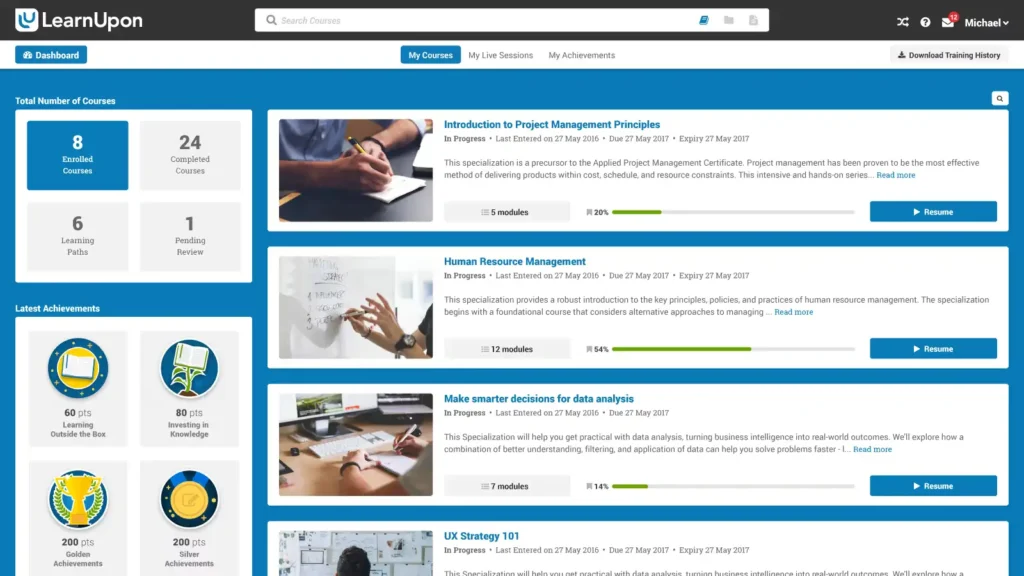
LearnUpon is designed to be straightforward with its friendly user interface. Designed for external training, it has the ability to manage multiple portals for different audiences. Enabling you to serve different customer segments with tailored experiences. Its strong integrations with sales & marketing tools further facilitate a smooth user journey.
Pros:
- Easy to use & set up with a clean UI & plenty of help resources
- Helpful customer service
- Great features & pricing
Cons:
- Integration with authored content (e.g. storyline) can be frustrating
- Glitches in data updation from backend to dashboard
Rating: 4.8 out of 5 on Capterra.
Read about multi-tenancy LMSs for catering to multiple branches/batches from one single platform.
7.TalentLMS
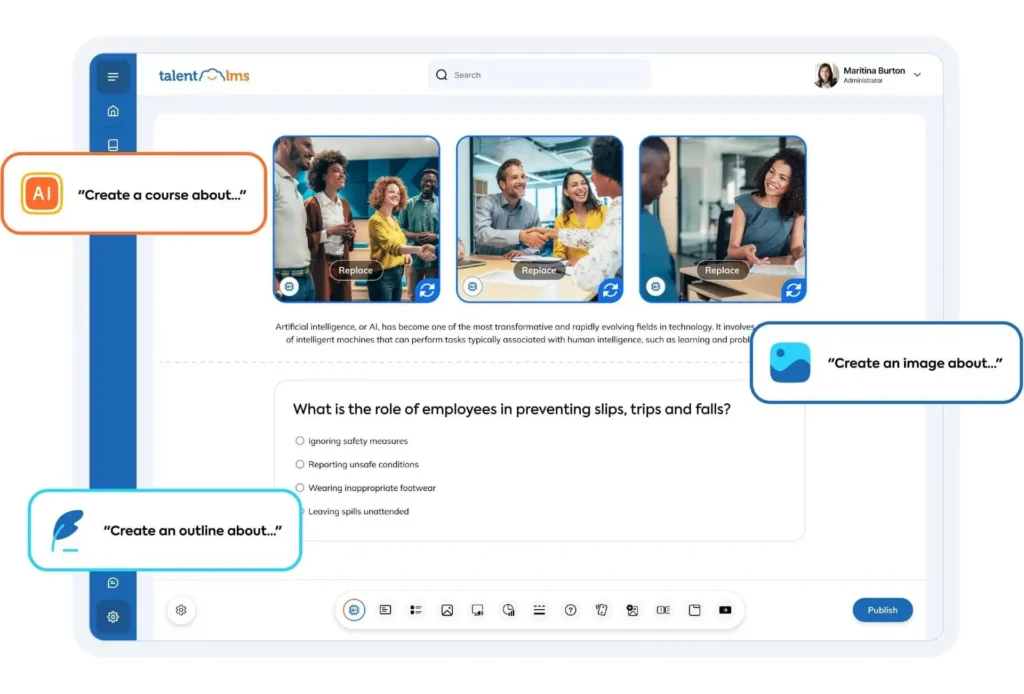
TalentLMS can be quickly adapted for customer training purposes. It emphasizes simplicity, ease of content creation & affordability without compromising functionality. It supports branding customization, gamification elements like points & badges, and mobile learning. Ensuring a flexible approach to keep customers motivated and engaged in training.
Pros:
- Responsive & helpful customer support
- Easy to learn & use with clean & pretty dashboards
- Offers good balance between value & performance
Cons:
- At times the customer support will feel inconsistent
- Users report lack empathy with smaller organisations or startups
- Limitations on adding content via the mobile app
- Limited customisability of system notifications
Rating: 4.7 out of 5 on Capterra.
Check out the best LMS software for startups.
8.iSpring Learn
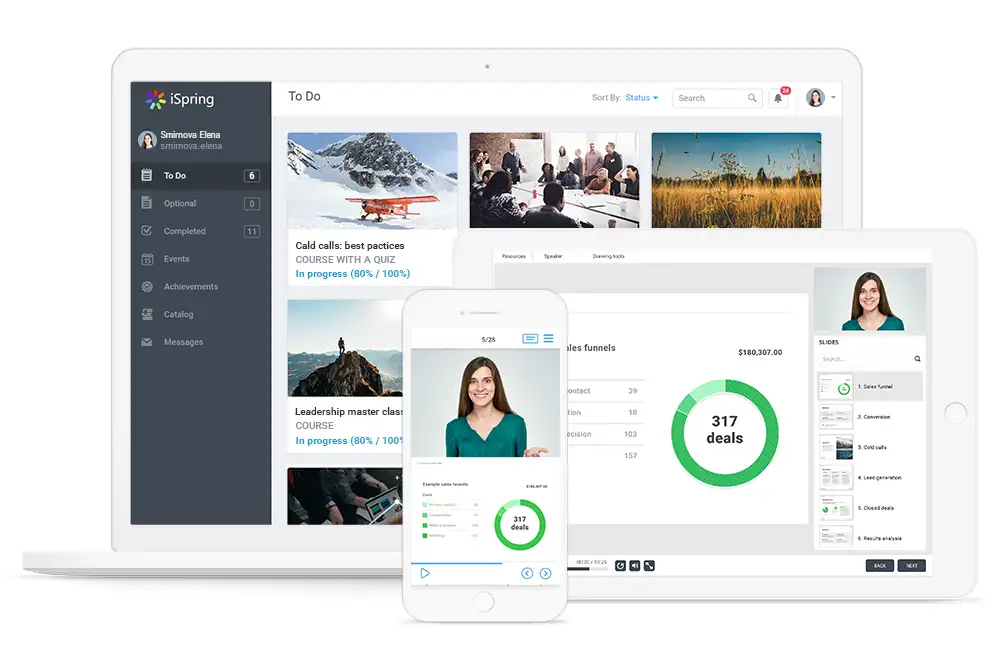
iSpring Learn is praised for its fast deployment & user-friendly design. It pairs with the iSpring Suite authoring toolkit for swift course creation. Supporting detailed reporting & analytics, it helps refine customer training materials over time. Its user-friendly design makes content management & navigation straightforward for both admins & learners.
Pros:
- Good customer service with easy deployment
- Easy to use with good animations
Cons:
- Restrictions on applying due dates to learning paths
- Steep learning curve in using the authoring tool
- Limitations on custom user profile fields (only list and email, no checkbox)
- Lack of Google/LinkedIn enabled SSO
Rating: 4.7 out of 5 on Capterra.
Also read about learning content management systems.
9.Looop
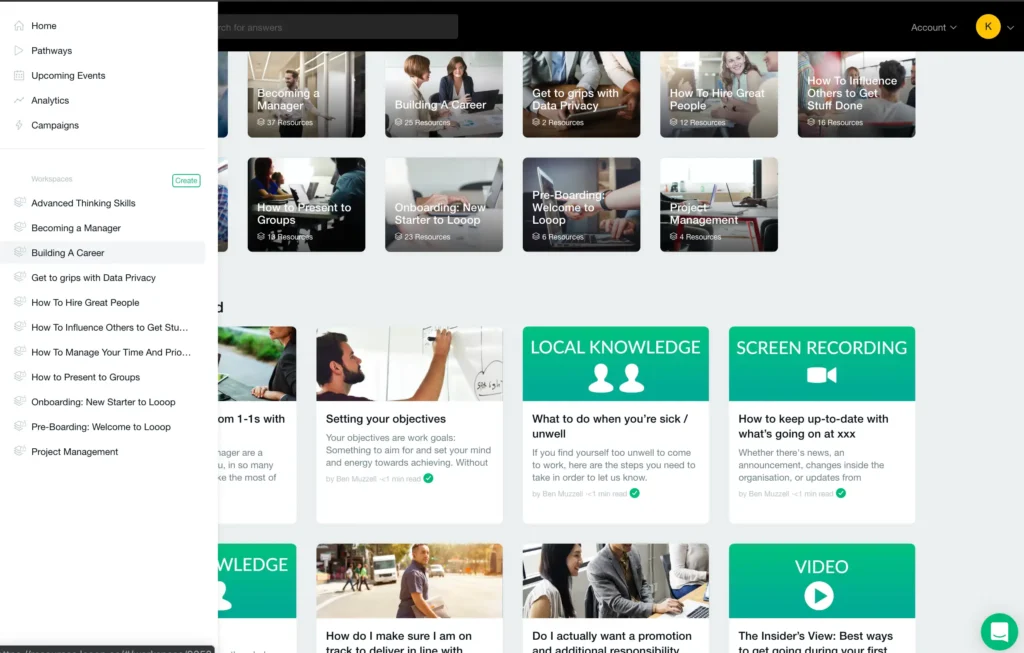
Looop’s LMS is designed to automate customer training workflows. Its focused on microlearning & quick content access, helping customers find answers at the moment of need. Automation features deliver targeted learning pathways, and simple course creation tools let you rapidly develop or update training in response to evolving product details.
Pros:
- Good campaign feature for tracking engagement
- Ease of implementation & creating pathways
- Robust analytics
Cons:
- Elements like language & banners may be a little difficult to get around
Rating: 4.9 out of 5 on Capterra.
10.360Learning
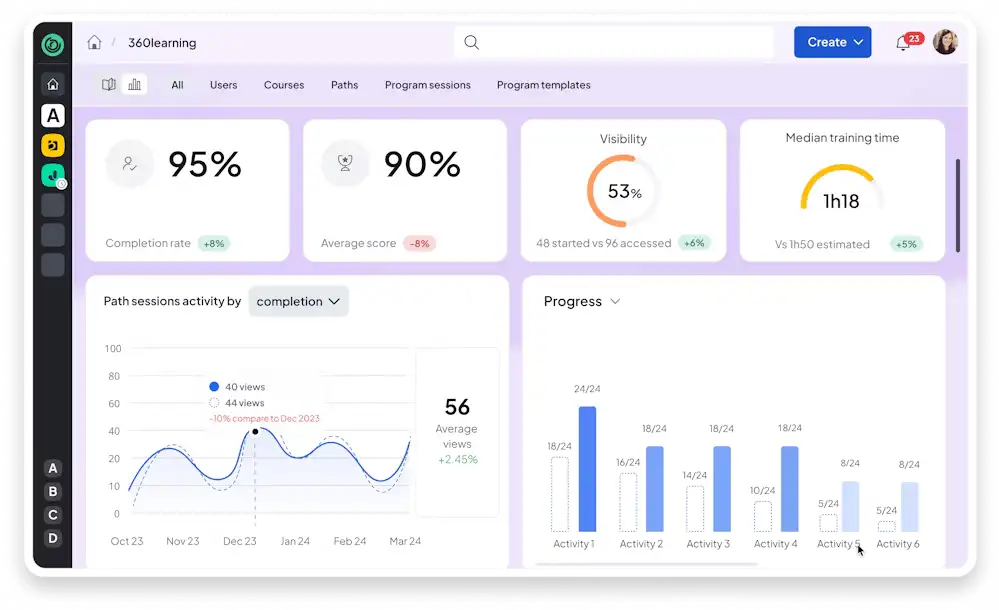
360Learning stands out for collaborative learning features, emphasizing on social learning and peer-to-peer interaction. With features like discussion forums, feedback loops & built-in authoring tools, it has a community-driven approach to foster continuous knowledge exchange.
Pros:
- Nice ergonomics, intuitive features, playful & easy to use for learners & admins
- Responsive multi-channel customer service with helpful implementation
- Quick course content creation
Cons:
- Limitations on adding of quizzes or exercises
- Lack of integrated gamification scenarios
Rating: 4.7 out of 5 on Capterra.
11.SC Training (Formerly EdApp)
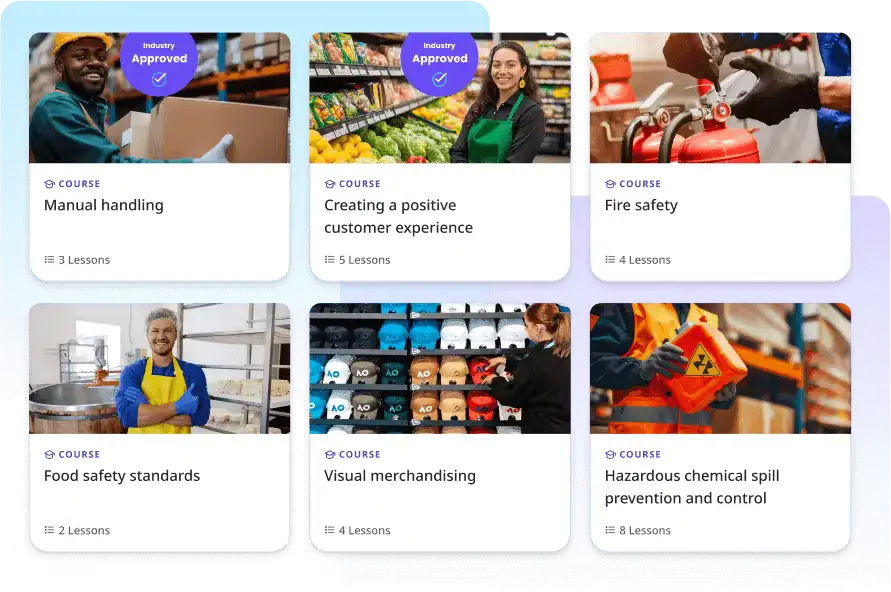
EdApp is a mobile-first LMS that emphasizes microlearning well-suited to busy external users. Its design facilitates bite-sized learning sessions ideal for mobile devices. It features a robust template library & gamified elements, like leaderboards & rewards, to boost learner participation.
Pros:
- Engaging & customizable course content
- Courses can be accessed via smart phones, tablets, or computers
- Good AI function with customizable platform
Cons:
- Learning curve for designing or modifying courses
- Formatting can be a little complex
- Setting up live lessons can be confusing
Rating: 5 out of 5 on Capterra.
Check out our blog on the best LMS for selling courses.
Selecting the Right Customer Education LMS for You
- It should facilitate easy creation, organization, and content management. It should support multiple content formats, versioning and updates.
- Consider customization of the platform. It should align with your branding guidelines to create a consistent brand experience.
- Ensure that the LMS provides an intuitive and user-friendly interface. It should be easy to navigate, search for content, and track progress.
- Scalability requires your prime focus. The platform should be capable of handling an expanding user base and course catalog.
- Evaluate the reporting and analytics capabilities of the LMS. Evaluate the reporting and analytics capabilities of the LMS. It should provide comprehensive insights into metrics. And generate of custom reports to track program effectiveness.
- Check whether it can integrate with other systems & tools you use such as a CRM or an HRM. This enables seamless data exchange and keeps operations streamlined.
- Consider the level of support provided by the LMS vendor. This will ensure if they offer timely customer support. Including technical assistance and troubleshooting.
- Security is paramount when handling customer data. Verify that the LMS adheres to encryption and secure access protocols.
- Here’s the most important thing. The pricing plans. For this, check our blog on learning management system pricing. In order to better understand the return on investment (ROI) the software can provide.
- Finally, do tons of research. Study customer reviews on platforms. Then assess the suitability of the software for your needs.
Challenges in Implementing an LMS for Customer Education
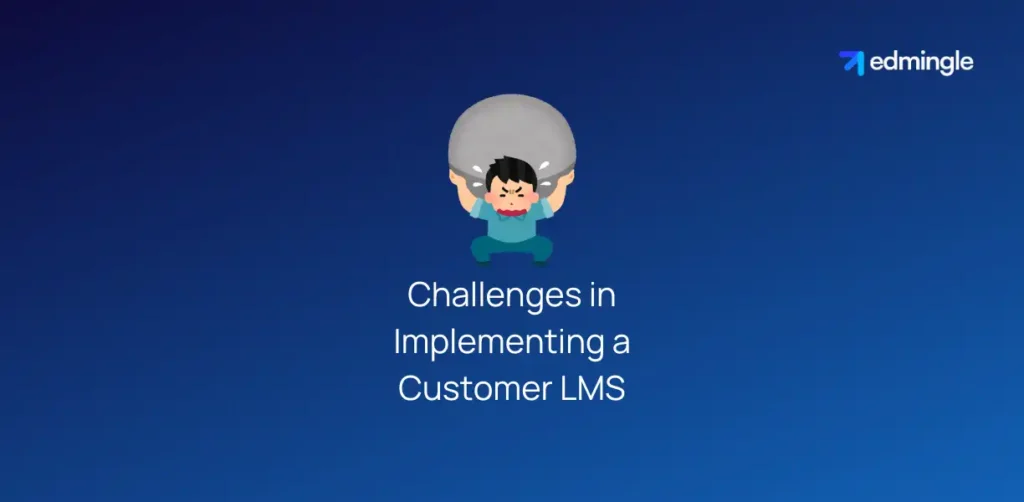
- Ensuring Content Relevance: Tailoring training materials for external customers is time-intensive. Especially when product lines or services frequently evolve.
- User Onboarding & Adoption: Getting customers to adopt & actively engage with your product requires clear communication, easy enrollment processes & intuitive user experiences.
- Branding & White-Labeling: Delivering a seamless brand experience can be complex. Particularly if you need to manage multiple portals or instances for different customer segments.
- Integration with Existing Systems: Linking the LMS to CRMs, marketing platforms, or other corporate tools can be challenging. Requiring careful attention to data flows, user management & access control.
- Security & Compliance: Storing & processing customer data demands robust security measures & adherence to industry or regional regulations. This can further complicate the implementation of an LMS.
- Measuring ROI & Impact: Demonstrating the tangible benefits of customer training—like increased product usage, reduced support costs, or higher renewal rates—requires tracking & analyzing detailed user metrics.
Check our complete guide to calculating & improving ROI of your training business.
Conclusion of Customer Training Software
Choosing the right LMS for customer training can significantly boost product adoption, reduce support costs & foster long-term customer loyalty. From fully white-labeled solutions like Edmingle to feature-rich platforms such as Docebo. Each option in this list addresses different training needs, budget constraints & integration requirements.
Before finalizing your choice, ensure the system supports your branding, scales with your user base & provides actionable analytics to measure ROI. Factor in how quickly your team can adopt the platform, the level of technical support offered & whether it aligns with your compliance and security standards.
When all these elements come together, you’ll empower your customers to truly master your product or service. Ultimately, driving satisfaction, retention & sustainable business growth.




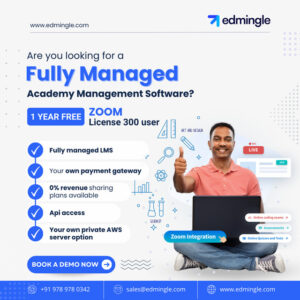
Leave a Reply